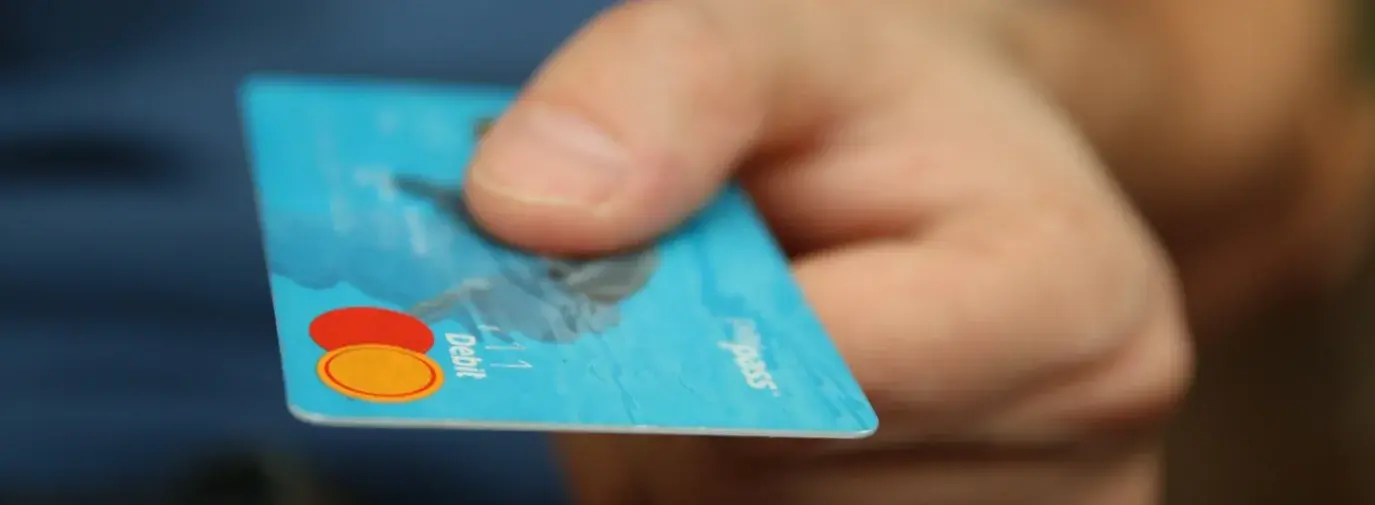
Since Green America launched our “Break Up With Your Mega-Bank” campaign in 2008, we’ve heard from thousands of Green Americans who have broken up with their mega-banks, switching their bank accounts to community development banks or credit unions. And it’s no wonder why — for decades, mega-banks like Bank of America, Citigroup, JP Morgan Chase, Wells Fargo, and others have been engaging in predatory lending, investing in fossil fuels, and deceiving consumers with hidden charges and fees—and they were a central cause of the Great Recession.
But even if you’ve switched your bank account to a local credit union, you may still be linked to mega banks through credit cards. When you open a credit card account, your fees—annual fees, balance transfer fees, and any late fees, as well as the fees that the merchants pay and any interest you pay on your card balance—go to the issuing bank. The bank, in turn, makes loans to individuals and businesses.
“When you use a mega-bank’s card, you’re bolstering all the things the bank’s loans support, from clearcutting forests to new coal-fired power plants to predatory loans,” says Fran Teplitz, Green America’s director of social investing programs. “Community development banks and credit unions provide the best opportunity for cardholders to avoid supporting bad practices and to positively impact communities.”
The good news is that you can find a credit card issued by a community development bank or credit union, which will in turn use your fees to support operations you can feel good about. Using a responsible credit card, when combined with smart practices like minimizing debt and paying off your card on time, may change your relationship with that little piece of plastic in your wallet. If you use credit cards, you can put your money to work for change every time you make a charge.
What's Wrong with Mega-Banks?
You know those credit card offers that sometimes flood your mail or inbox? Odds are they are from a mega-bank, and odds are even better that the mega-bank has a history of engaging in unethical business practices and funding problematic projects.
• Foreclosure scandals: The economy continues to suffer from the downturn initiated by the wave of dishonest mortgages issued by mega-banks, and homeowners are still struggling through the foreclosure crisis. Early this year, Bank of America, Citi, JP Morgan Chase, and Wells Fargo all agreed to pay billions of dollars to the US government to settle accusations that they improperly reviewed foreclosures and mishandled loan modifications in 2009 and 2010.
• Contributing to climate change: Banks and the companies they fund continue to engage in mountaintop-removal coal mining and to build carbonspewing coal-fired power plants, despite the threat of climate change. Dirty Money, a 2012 report released by the Rainforest Action Network (RAN), BankTrack, and the Sierra Club, grades US Banks based on their connections to mountaintop-removal mining and coal-fired power plants. Bank of America, JP Morgan Chase, Citi, Morgan Stanley, and Wells Fargo were found to be the five worst banks when it comes to coal financing, with Bank of America leading the pack.
• Harming the Earth: Many megabanks are also underwriting projects in the tar sands of Canada; a practice that is destroying Canada’s Boreal Forest, which provides critical habitat for several species and is one of the largest intact forests remaining on Earth. According to 2010 research by RAN, Canadian and American banks continue to provide financing and underwriting to companies involved in tar sands extraction, including Canadian bank RBC, JP Morgan Chase, Citi, and Bank of America.
And, says RAN, Morgan Stanley, Citigroup, and Merrill Lynch provided loan capital for China’s notorious Three Gorges Dam, an electrification project completed in 2012 that displaced over 1.4 million people, submerged toxic facilities, and destroyed critical wetlands.
• Playing politics: Many mega-banks make large political donations to parties and causes that may or may not mesh with your values. JP Morgan Chase, Citi-Group, Bank of America, Wells Fargo, and US Bancorp all gave primarily to Republican candidates in 2011-2012, with some money also going to Democrats.
“Banks and other organizations that make political contributions generally [do so hoping] they have earned the right to be heard,” says Viveca Novak at the Center for Responsive Politics (CFRP). “Any industry with as many issues before Congress as banks have will do whatever it can to make its arguments to the right people.”
For detailed information on campaign donations from these institutions, visit CFRP’s opensecrets.org.
• Predatory lending: In 2009, the Credit Card Accountability Responsibility and Disclosure (CARD) Act was put into place to protect consumers from some of the worst predatory lending practices once common in the credit card industry. The CARD Act protects consumers from retroactive interest rate increases, while giving them greater notice of changes in terms, more time to pay monthly bills, and more. However, mega-banks continue to work around these laws, enacting predatory policies like Wells Fargo’s policy to charge $15/month on checking accounts holding less than $7,500.
Some mega-banks have started offering new loan products with names like “Checking Account Advance” or “Direct Deposit Advance.” These products offer a customer an “advance” on the next direct deposit into their checking account, which is then deducted automatically by the bank—at a hugely infl ated interest rate—upon their customer’s direct deposit.
“Some of these loans have interests rates of 365 percent,” says Teplitz. “These are nothing more than predatory payday lending schemes by other names.”
Get a Card from Better Banks
You can direct your credit card fees and interest away from the mega-banks by using a credit card issued by a community development bank or credit union. Community development institutions use your fees to help small businesses thrive, provide loans to inventive entrepreneurs, and help homeowners manage their existing loans or purchase houses that fit in their budgets.
Visit BreakUpWithYourMegaBank.org or download our free Guide to Community Investing to find a local community development bank or credit union near you that issues a card.
Here are some of our favorite credit cards.
What about Affinity Cards?
Affinity cards promise the ability to support select nonprofits through your credit card purchases. Each time you use an affinity card, the issuing bank donates a set amount to a partner nonprofit—averaging half a penny for every dollar you charge or transfer, according to Bankrate.com. Such cards are often connected with a mega-bank; therefore, most of the fees associated with the card support that bank and any of its problematic practices. Also, APR fees tend to be higher for affinity credit cards.
Break Up Today!
Cutting up that mega-bank credit card is another step to breaking up with your mega bank and starting a healthier relationship with a local community development bank or credit union. Visit Green America’s BreakUpWithYourMegaBank.org to find a directory of community development institutions and for more tips and resources.
Updated 2022







